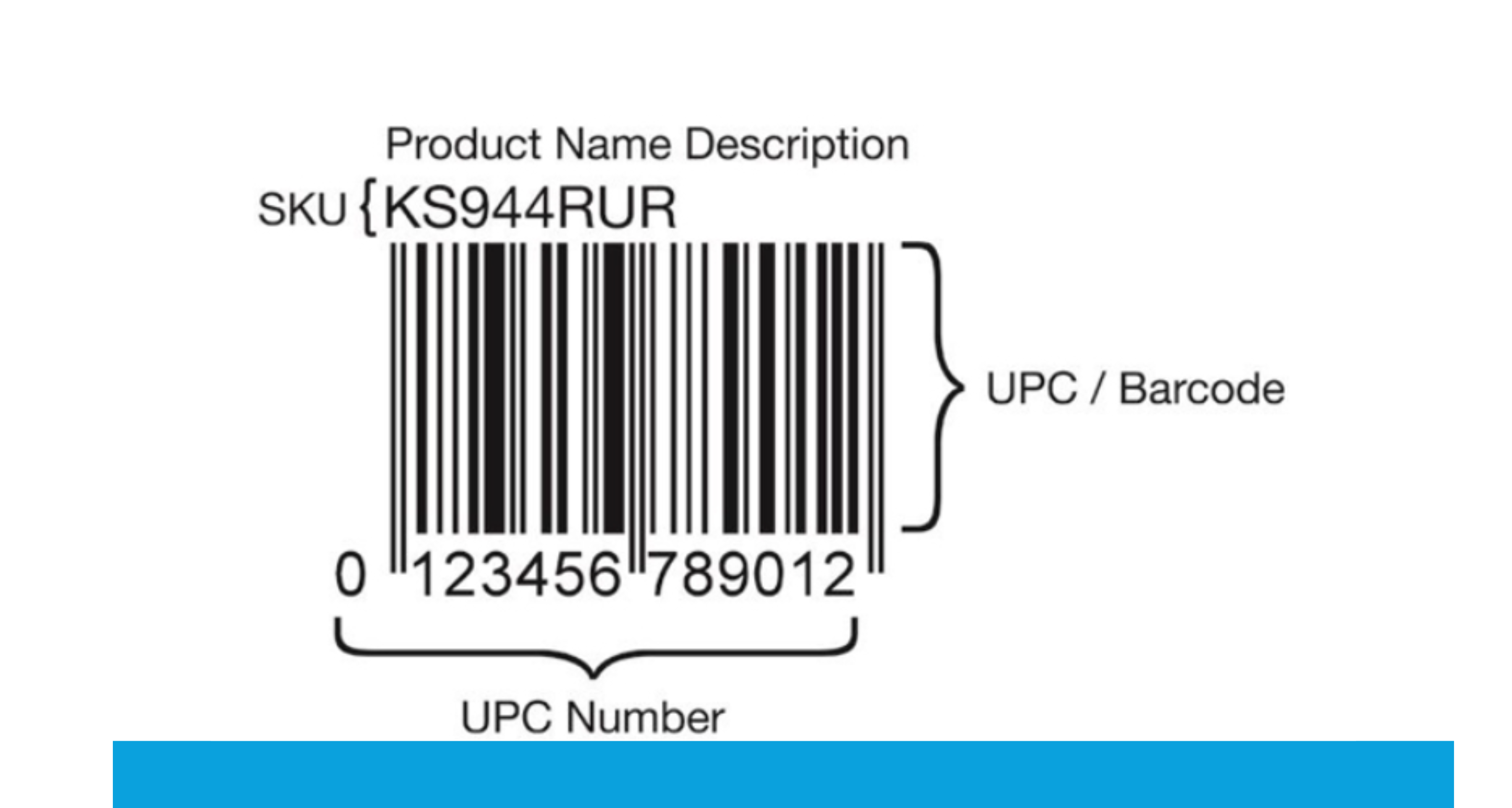A stock keeping unit (SKU) is an alphanumeric code given to inventory that enables businesses to keep track of their inventory, calculate sales by product and category, plan store layouts and traffic patterns, and improve customer experiences. A stock keeping unit can be used for more than just product identification. Understanding these codes and how to create one is crucial. In this article, we will discuss what is a SKU and all other information you need to know about SKU.
What is the definition of a SKU?

SKU, which stand for “stock keeping unit”, is scannable barcode that is most frequently found printed on product labels at retail establishments. Retailers utilize SKUs, to distinguish between products and maintain track of inventory levels. Typically, an SKU has eight alphanumeric digits. Different SKU numbers are given to products based on factors including price, manufacturer, color, style, kind, and size.
Organizations have different SKUs for the same products because SKUs are created internally by businesses to maintain inventory.
Noticeably, SKU is different from UPC. UPC, which stand for “universal product code”, is intended to distinguish identical goods, wherever they may be marketed. SKU is assigned only to the retailer who is selling the products. UPC is issued by the Global Standards Organization. The barcodes or UPCs of two products could be identical, though. Additionally, SKUs are alpha-numeric and can have a range of lengths, whereas UPC barcodes normally only contain numbers with 12 characters.
How do SKUs work?
SKUs help to distinguish products from one another. Because it would be challenging to keep track of sales and inventories without grouping them according to their origin, model, kind, color, size, or any other distinguishing characteristics.
For instance, a store selling shoes will need SKUs to track their inventory. The sellers may assign letter A for Adidas shoes, letter B for Nike shoes. The next series of the SKUs codes could be a size indicator (numbers from 3 to 6) and then colors (such as 001, 002, 003, etc.). A Nike red shoe of size 5 could have SKU of B5001.
Why are SKUs crucial for retailers?
SKUs allow customers to compare the qualities of similar products. For instance, online retailers may show comparable films purchased by other customers when a customer purchases a specific DVD based on SKU data. The customer may make further purchases as a result of this strategy, boosting sales for the business.
SKUs serve more purposes than merely product identification. With the data gathered, you have data that can be examined to determine the profitability and effectiveness of your retail operation.
1. Inventory Control
An SKU system’s primary function is inventory management. Retailers can monitor inventory levels, turnover, and flow by using an SKU. Using the data received from sales, they can establish inventory levels and timetables, which serve as triggers for starting or finishing inventory orders.
2. Information analysis
SKUs give retailers the ability to gather information that enables them to analyze sales patterns in their various consumer categories or decide which products are most popular. They are able to stock inventory in accordance with consumer behavior trends thanks to this analysis.
3. Customer experience enhancing
For example, when a client asks for an alternate version of a product, a store employee can scan an SKU to swiftly determine what is in stock, increasing sales efficiency and customer satisfaction.
4. Product Suggestions
Additionally, applying SKUs codes to improve customer experiences on ecommerce websites is a good idea. For instance, many online stores can use SKUs to select products to show as “suggestions” when you are shopping. Each product has simply received a special SKU from the corporation, along with all of its distinguishing characteristics. The purchasing platform may show you additional blenders that are comparable to the one you are viewing.
How to use SKUs for your business?
Before learning how to apply SKUs for your business, you need to create SKUs to label your products. SKU numbers are company-specific and not globally standardized because they are used by the producer to track products. Therefore, you are free to create whatever SKU system that works for your products and meets your demands. Typically, you will want to design a system with a logical flow for your products. Here are several ideas for you to apply SKUs for your company.
1. Using SKUs for inventory tracking
SKUs define product characteristics, making them useful tools for monitoring the availability of your whole inventory.
You may decide precisely when to place fresh product orders by using your SKU data to monitor product statuses. This accuracy leads to productivity and efficiency. Real-time inventory management helps you keep up with your company’s changing needs.
2. SKUs data help you balance between demand and supply
By collecting information from your inventory management, you can also forecast demand and sales.
Maintaining a pulse on these dynamic components of your retail business establishes you as a trustworthy business partner to your clients and suppliers. You may carefully assess your inventory to estimate demand and fulfill clients by organizing your SKU numbers to express the details that buyers care about about your products.
3. Highlight your most lucrative products
Your SKU architecture showcases both your most popular products and your least popular ones. Your SKUs can also help you get inventive with your best-selling products in addition to helping you determine your reorder points and which products to eliminate.
Moreover, data about your top revenue-generating products can inform decisions on in-store product displays and visual merchandising, as well as tactical marketing initiatives that speed up the turnover of that popular stock.
4. Boost sales by offering products suggestion to customers
SKUs can be used on the sales floor as well. For instance, if a product is out of stock, your retail staff can use their understanding of SKUs to point clients toward alternatives. As an alternative, if a customer’s desired item is in stock, your staff members might recommend complementary items.
Additionally, ecommerce websites frequently use this. When you browse products online, merchants frequently present similar goods you might enjoy. This is most commonly accomplished through a retailer’s SKU architecture, where an algorithm has been used to generate suggestions for products with comparable qualities or attributes.
Want to build an ecommerce website? Scuti is here to help_____________
Conclusion
Undoubtedly, with SKUs, it is less likely that customers would receive the incorrect item from you and it helps with refunds if necessary. You may create an SKU architecture that enables you to effectively manage your inventory and expand your retail business by having a clear grasp of what’s important to you, your vendors, and your customers.
